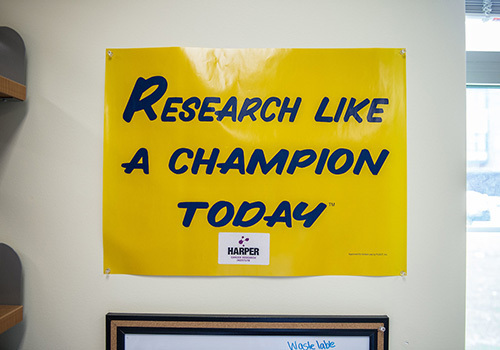
Brandi Klingerman | June 12, 2017

To detect an illness in the body, common diagnostic tests like the enzyme-linked immunosorbent assay (ELISA) are used. Unfortunately, ELISA takes hours to process and requires expert analysis, limiting its benefits for developing countries and those who require immediate results. In order to combat these challenges, Notre Dame researchers have been working to develop an improved test and have recently published a study on a new diagnostic method that uses gold nanoparticles, requires little to no expertise, and provides results in minutes.
In discussing the benefits of the diagnostic method, Nur Mustafaoglu, a Chemical and Biomolecular Engineering graduate student, lead author, and Advanced Diagnostics and Therapeutics (AD&T) Berry Family Graduate Fellow, said, “The motivation for this research was to generate a test that was straightforward, rapid, and did not require expert knowledge to use. This way, diagnosing infectious diseases, cancers, and more would be that much easier to do in real-world settings.”
The research, which was funded by the National Science Foundation and National Institutes for Health, focuses on creating a biosensor that works by targeting antigens, or toxins, that induce an immune response in the body and trigger antibodies to counteract the antigen. However, antibodies and antigens are minuscule, making it difficult to know whether or not they are in a blood sample. To overcome this, the Notre Dame researchers functionalized antibodies with gold nanoparticles. When antigens are present, clusters of antibodies with gold nanoparticles will form. This makes the resulting composition large enough to signal that an antigen is present, which can then be tested.
Originally published by at dailydomer.nd.edu on June 14, 2017.